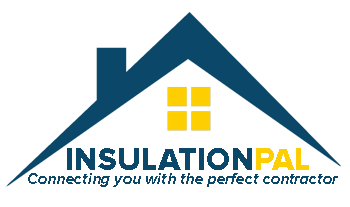Residential Insulation: Definition and What it is
Insulation systems designed specifically for residential homes and dwellings.
What is Residential Insulation?
Residential insulation encompasses all insulation products and systems designed for single-family homes, townhouses, and small multi-family dwellings. These systems prioritize cost-effectiveness, ease of installation, and performance suitable for residential construction methods and living environments.
Residential insulation differs from commercial applications in scale, installation methods, and performance requirements. Homes use standard framing dimensions (2x4 and 2x6 studs, 16 or 24-inch spacing) that accommodate batt insulation. Attics typically receive blown insulation for complete coverage. Basements and crawl spaces need moisture management in addition to thermal resistance. Residential projects often balance DIY capability with professional installation, cost constraints with performance goals, and immediate expenses against long-term energy savings.
Common Residential Insulation Applications
- Attic Insulation: Blown fiberglass or cellulose, typically R-38 to R-60
- Wall Insulation: Batts or dense-pack for retrofits, spray foam for premium performance
- Basement/Crawl Space: Rigid foam, spray foam, or batts with moisture management
- Specialty Areas: Rim joists, knee walls, bonus rooms, and cathedral ceilings
Whole-Home Residential Insulation Strategy
Effective residential insulation starts with an energy audit to identify priorities and calculate ROI. Prioritize attic insulation first—it typically offers the best payback. Air sealing is equally important as insulation—seal leaks before adding insulation. Address basement rim joists, which often represent 15-20% of heat loss. Insulate accessible walls during renovations. Consider spray foam for problem areas like bonus rooms over garages. Work with qualified contractors for spray foam and dense-pack applications while handling DIY-friendly batts yourself to manage costs.
Benefits of Residential Insulation
- Reduce heating and cooling costs by 15-30%
- Improve year-round comfort and eliminate drafts
- Increase home value and marketability
- Qualify for utility rebates and tax credits
- Reduce carbon footprint and environmental impact
- Create quieter indoor environment
Residential Insulation Cost
Residential insulation costs vary by application area, material choice, and installation method.
- Whole-house insulation upgrade ($3,000-$10,000 for average home)
- Attic-only project ($1,500-$4,000)
- Wall retrofit ($2,000-$6,000)
- Basement/crawl space ($2,000-$5,000)
- Material choice (fiberglass cheapest, spray foam most expensive)
- DIY vs. professional installation
How InsulationPal Can Help You
InsulationPal connects you with licensed, experienced insulation contractors. Compare multiple quotes to get the best value for your project.
Free Quotes: Get multiple competitive quotes from pre-screened contractors.
Expert Matching: We match you with pros experienced in residential insulation.
Quality Assurance: Licensed, insured, and verified contractors.
Related Services and Resources
Explore all services we offer
Expert guides and tips on insulation
